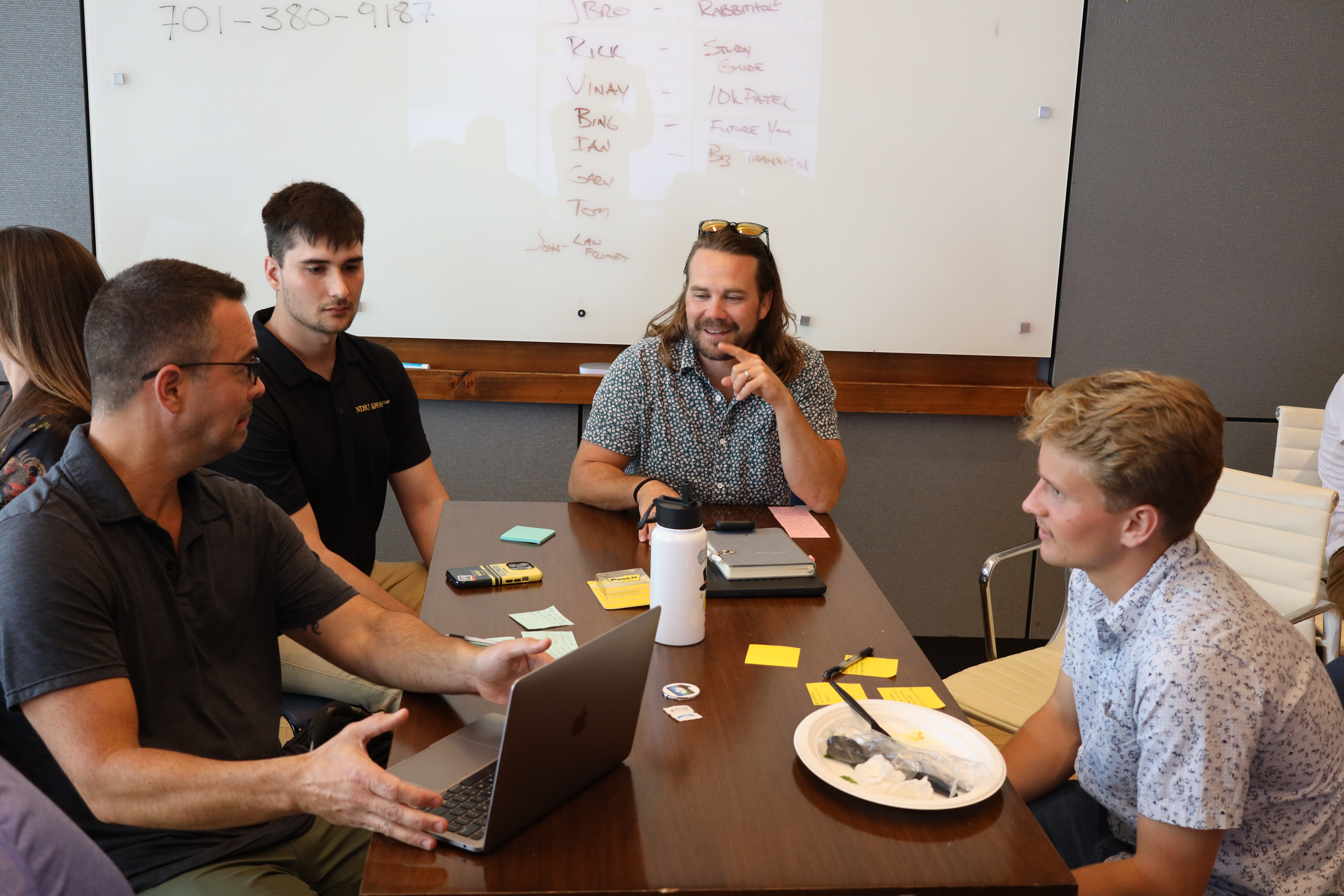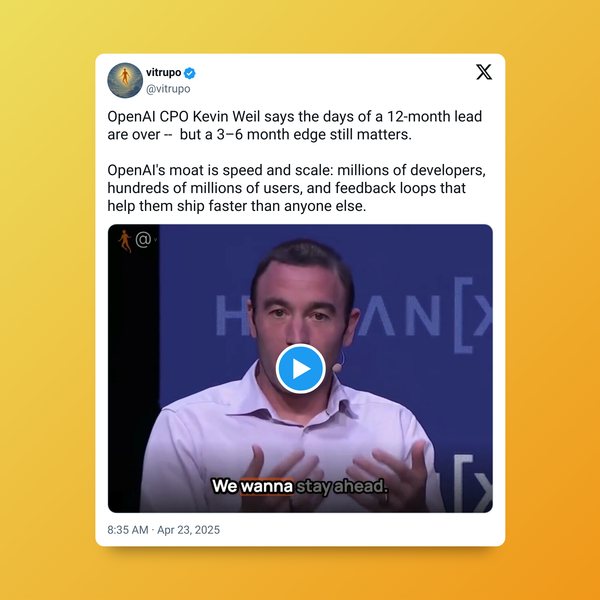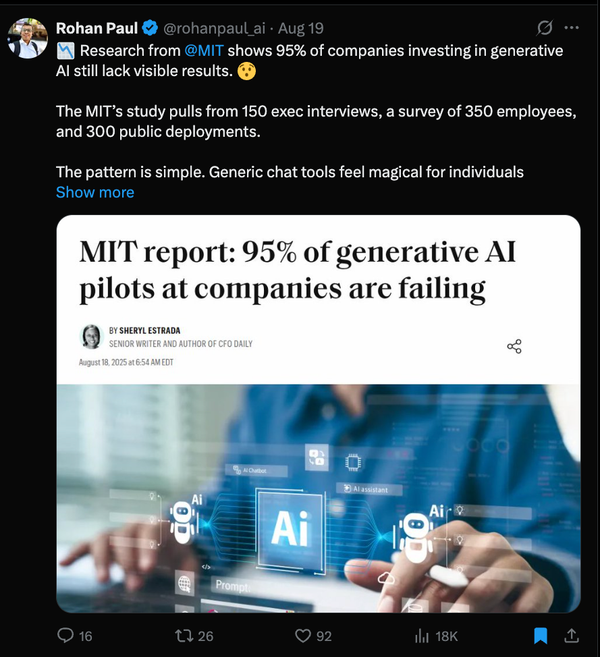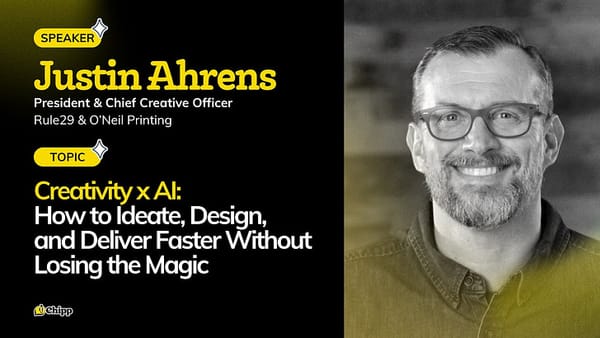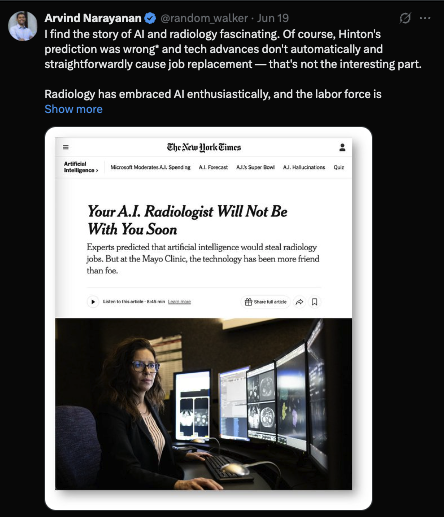AI is moving quickly. 💨
Here are the highlights from the week that was in AI and Chipplandia and our spicy takes on what it actually means 🌶️:
AI Highlights from Around the Web
Speed & Scale Are The Moat
OpenAI's Chief Product Officer Kevin Weil challenges the idea that AI models are becoming commoditized. While acknowledging that the days of 12-month leads are gone, he argues a 3-6 month edge remains critical in this rapidly evolving space. OpenAI's impressive numbers tell the story: 3 million developers using their API, over 400 million weekly ChatGPT users, and 2 million business users on enterprise products.
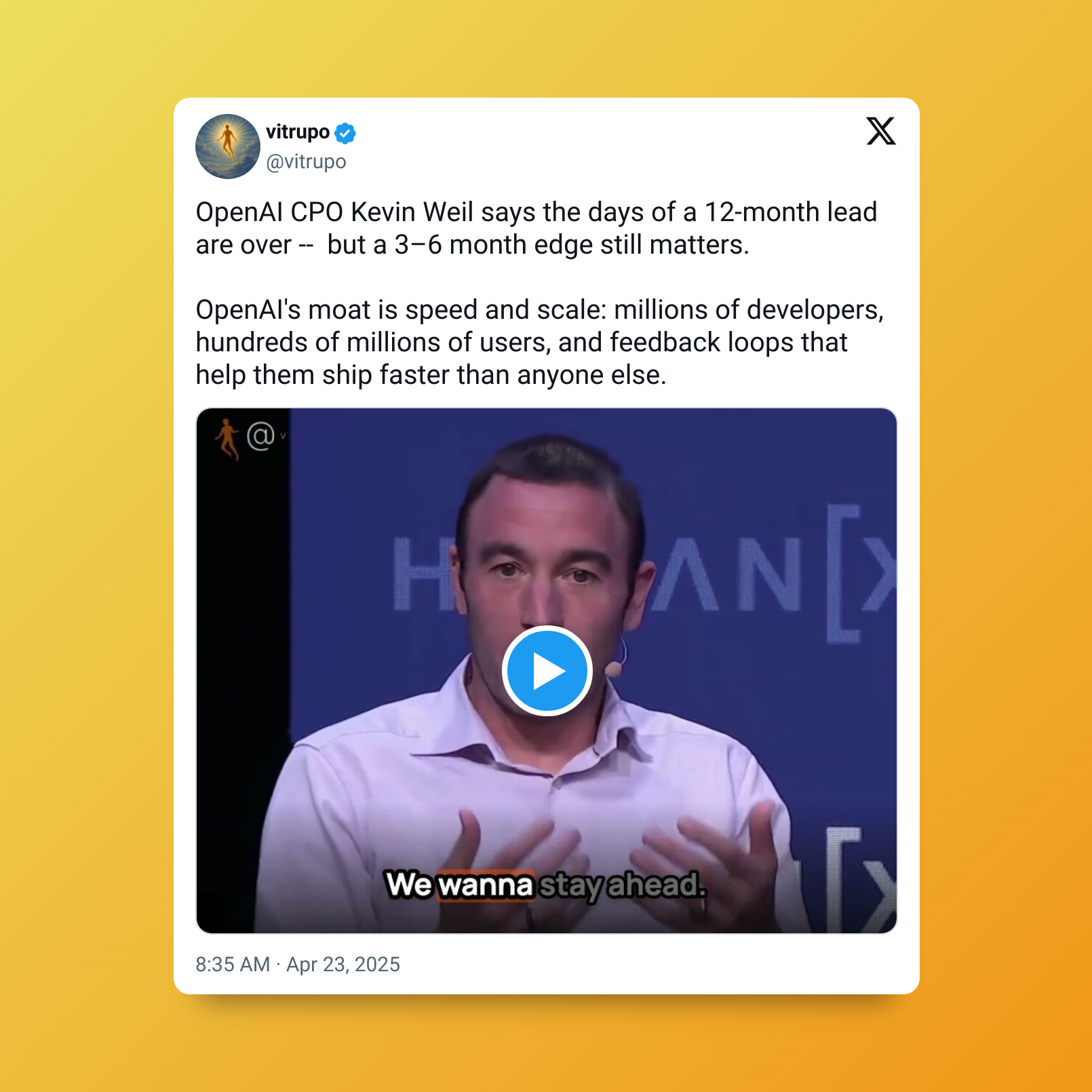
🌶️ Power users will want the best model - especially for high leverage work. That’s good for OpenAI. I think the majority of users, however, could use what exists now and be completely happy.
Claude Raises the Waterline for Competence
Alex Albert points out that Claude and similar AI systems handle 99% of general discrete tasks better than the average person — work that used to require basic professional training but not deep expertise.
This creates an interesting split: routine generalist work (basic coding, first-draft writing, common diagnoses) becomes commoditized, while both deep specialists AND high-level generalists who synthesize across domains become more valuable.
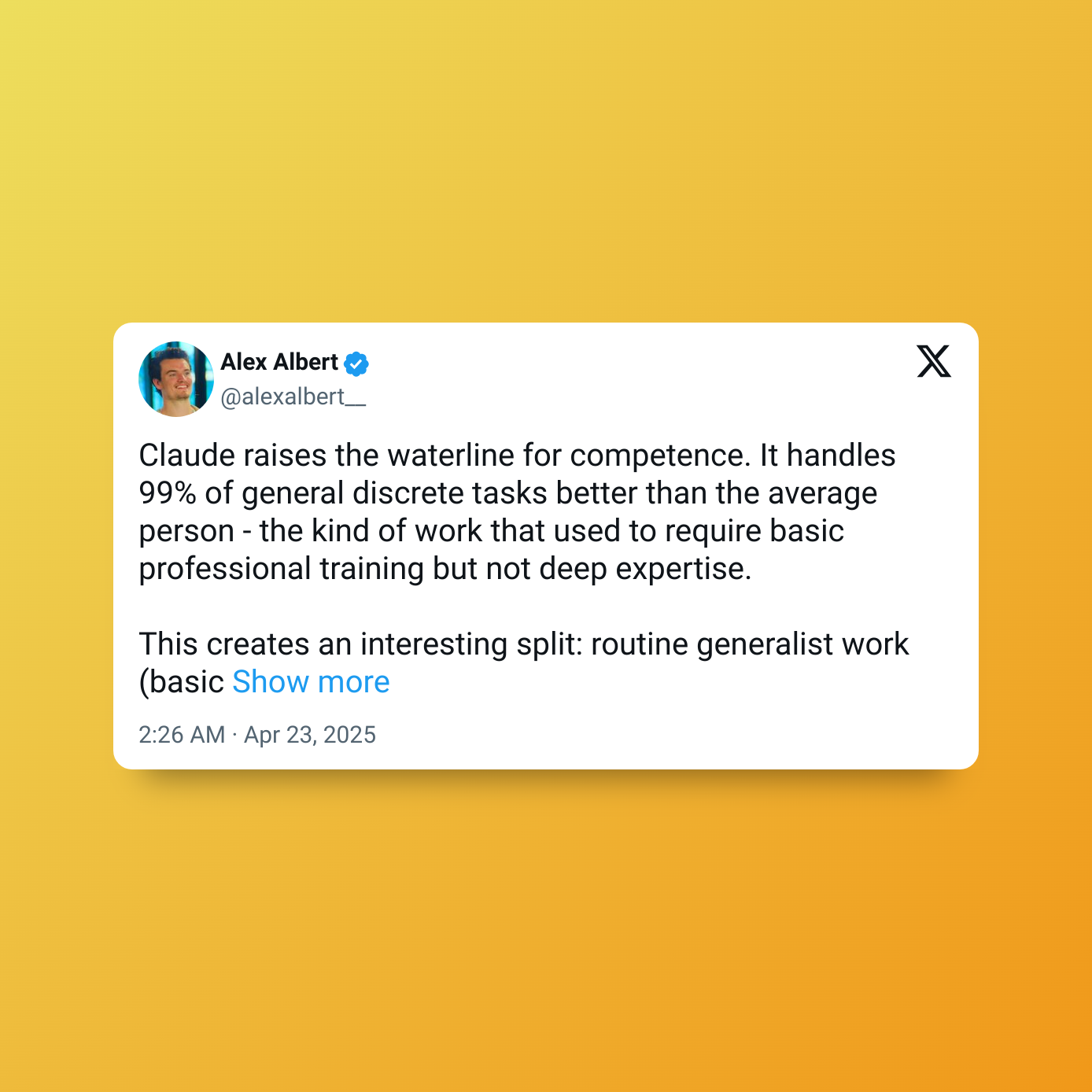
🌶️ Dust off those liberal arts degrees. Being able to context switch and draw comparisons and inspirations across fields and tasks is a super power in the Age of AI.
AI as Normal Technology
Ethan Mollick shares an intriguing perspective on AI adoption that frames artificial intelligence as "normal technology" — more like electricity or the internet than some autonomous superintelligence.
The article argues that AI's impacts will unfold gradually over decades, constrained by social, organizational, and regulatory factors. AI progress happens in three stages: invention (methods), innovation (applications), and adoption (use), with significant delays between them, especially in high-stakes domains.
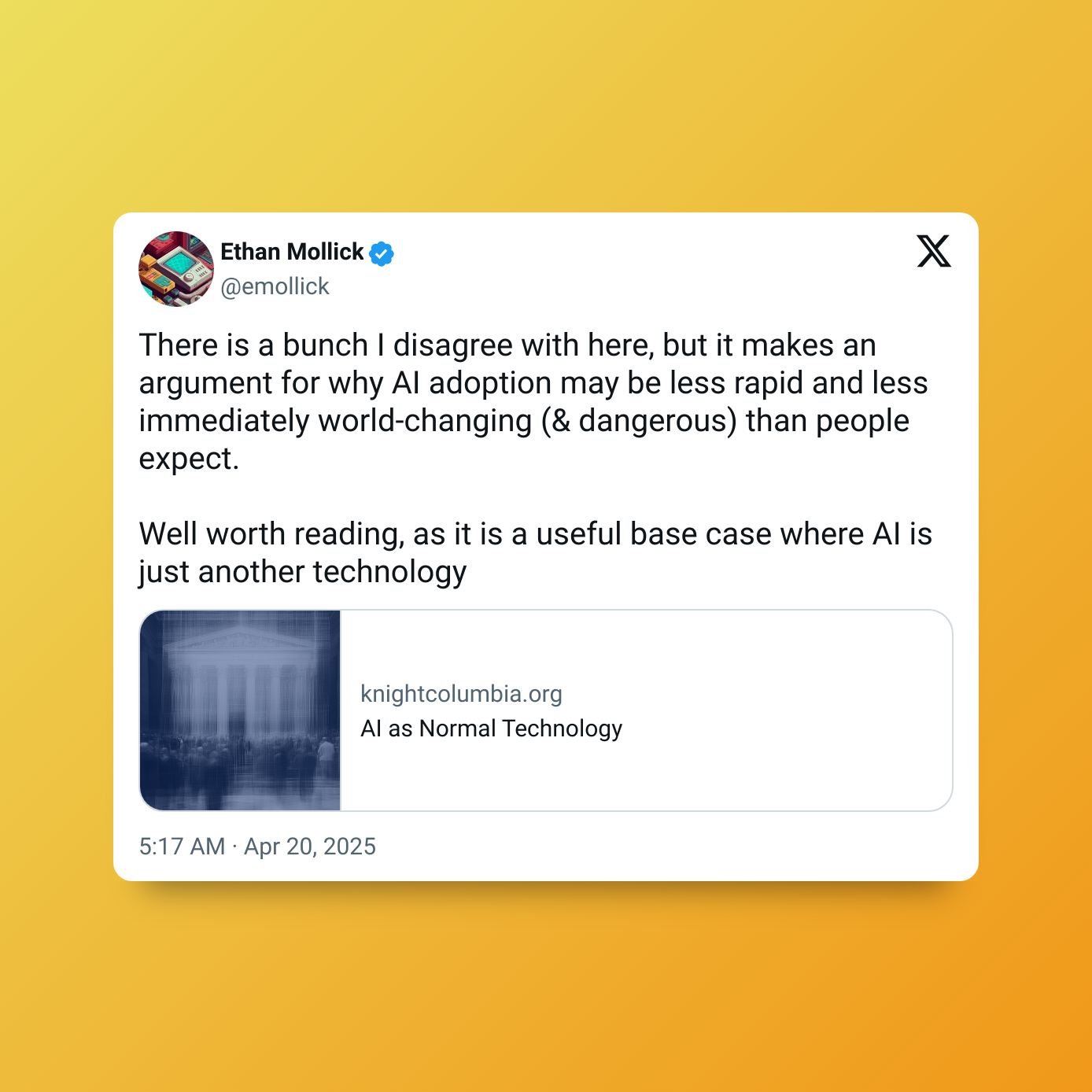
🌶️ We are at a crossroads where AI is life changing for some and another technology for others. The rate of adoption and dispersion may well determine whether it is just another technology or a step-change in how we work. We are guessing the latter.
Chipp Highlights
Chipp Workshop Recap: GPT-4.1: Best Way To Use The New Model
Scott Meyer broke down everything you need to know about OpenAI's latest GPT-4.1 model in our workshop yesterday. With a massive 1 million token context window (that's about 750,000 words or 10 novels!), GPT-4.1 is smarter, slightly faster, and even cheaper than its predecessor.
Scott shared updated prompting techniques to get the most from this powerful model:
- Use the "RIPER" framework (Role, Instruction, Parameters, Examples, and Restate)
- Add your role/instruction at the end to avoid the "lost in the middle" problem
- Use markdown or XML to structure your prompts for better performance
- Try step prompting to break big tasks into manageable chunks
The workshop also covered when to use knowledge sources versus instructions and how to leverage branch prompting for more interactive experiences.
Power Up Your Legal Practice with Chipp
Scott walks through the Legal Bundle, featuring specialized tools for legal professionals. The bundle includes a general Legal Copilot for analyzing and drafting documents, a Discovery Response Drafter for building detailed responses, and a Business Admin Bot that handles everything from meeting notes to email optimization.
These templates come pre-built but are fully customizable, allowing you to adapt them to your specific needs while maintaining strict security and compliance standards.
How to Train Your AI Agent
In this tutorial, Scott shares the secrets to effectively training your AI assistants. There are two key approaches: telling (via instructions) and showing (via knowledge sources).
The most important takeaway? Put critical information and your best examples in the instructions since they're referenced every time, while using knowledge sources for supplementary materials and reference documents. Scott also explains how to direct your AI to specific files when needed and why "more isn't always better" when it comes to training examples.
Invite your friends to join us on the journey to AI for All
